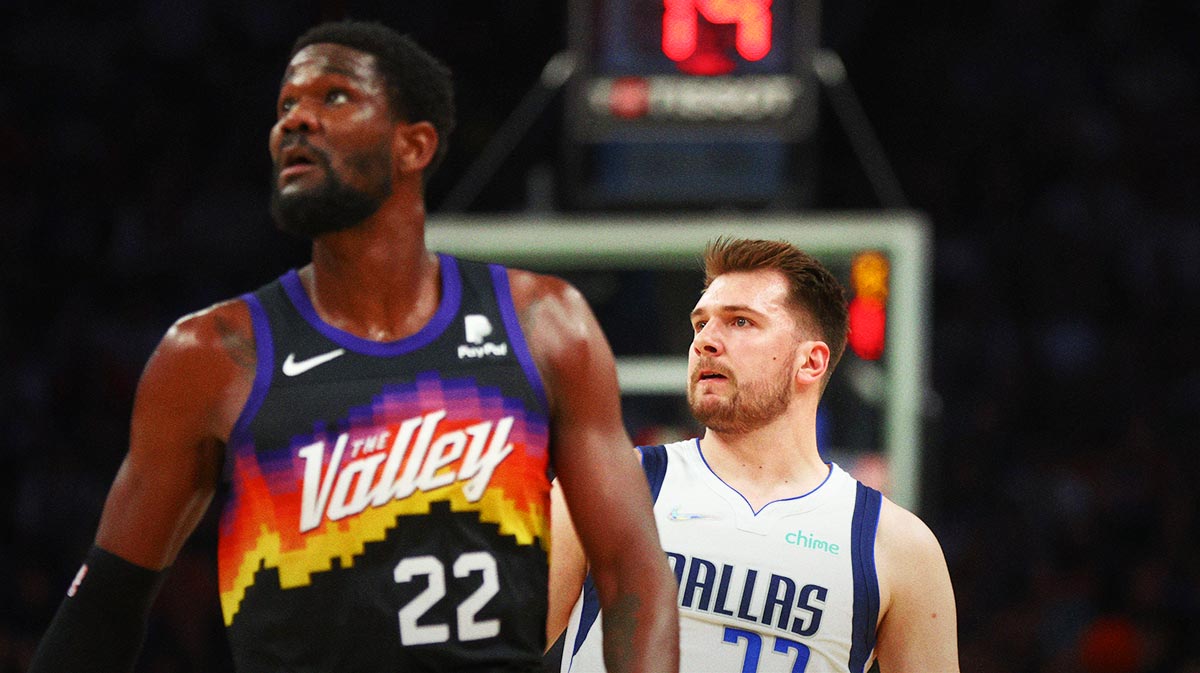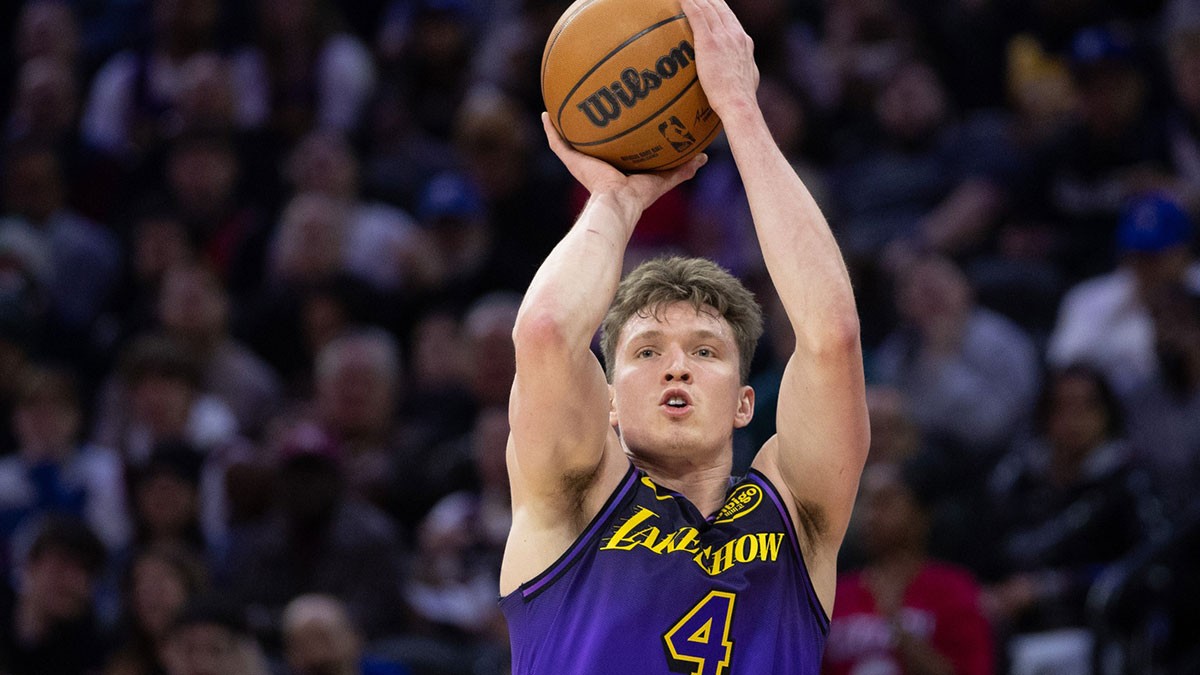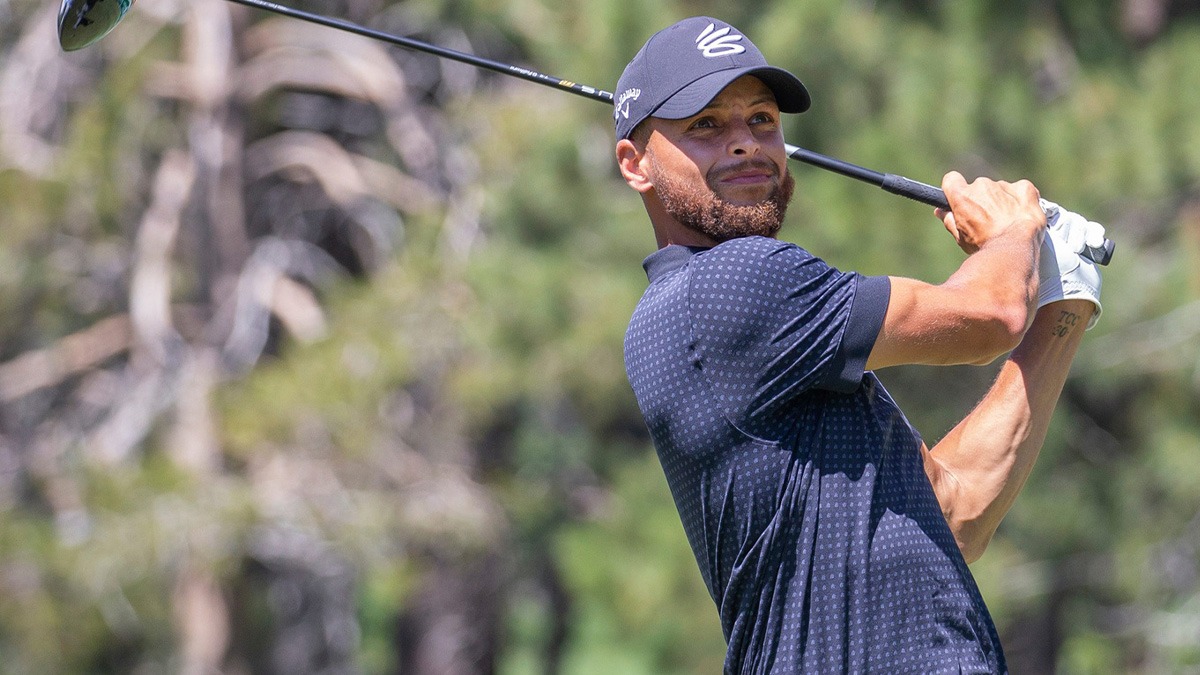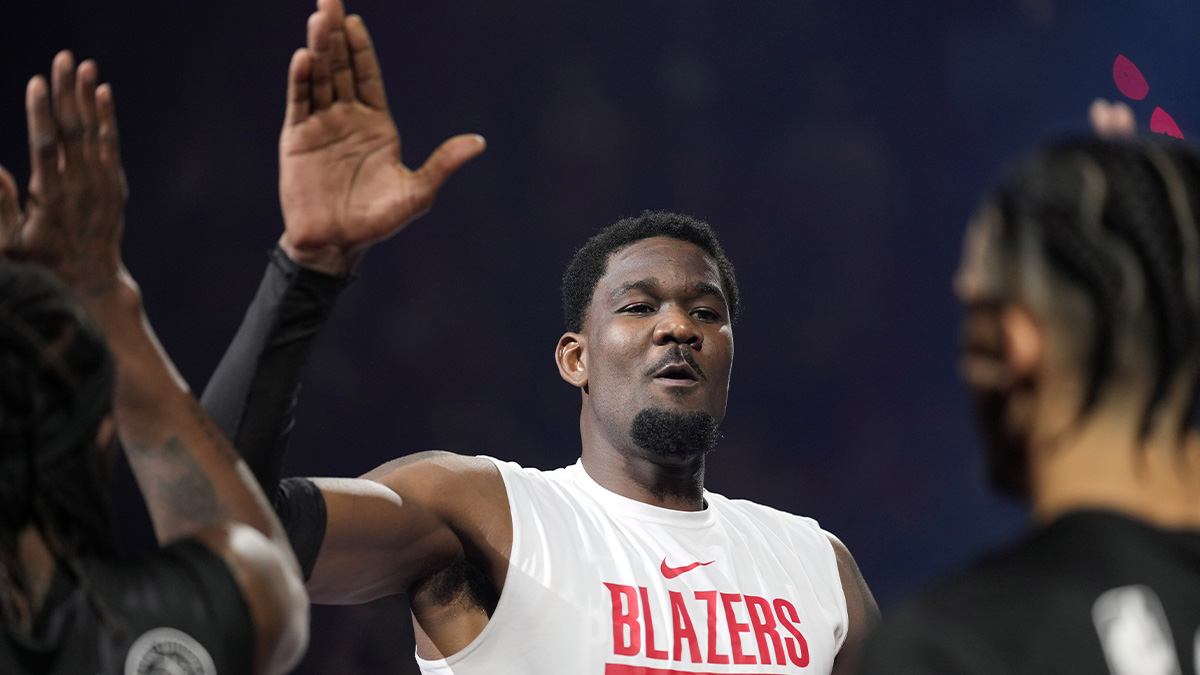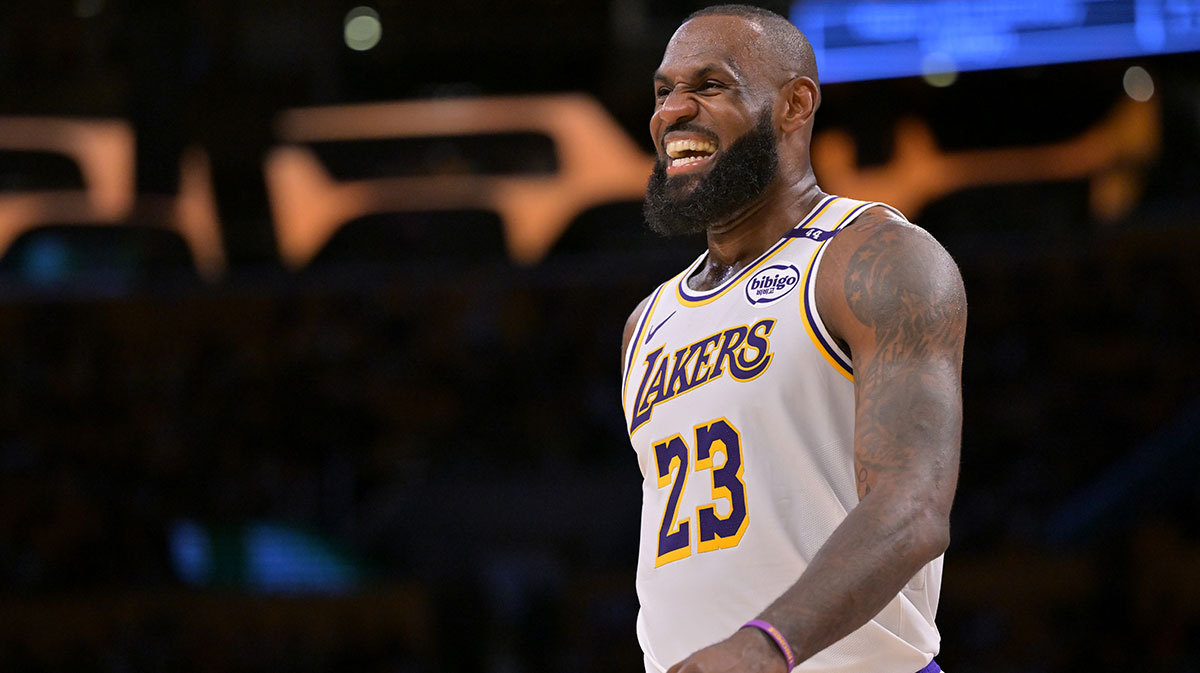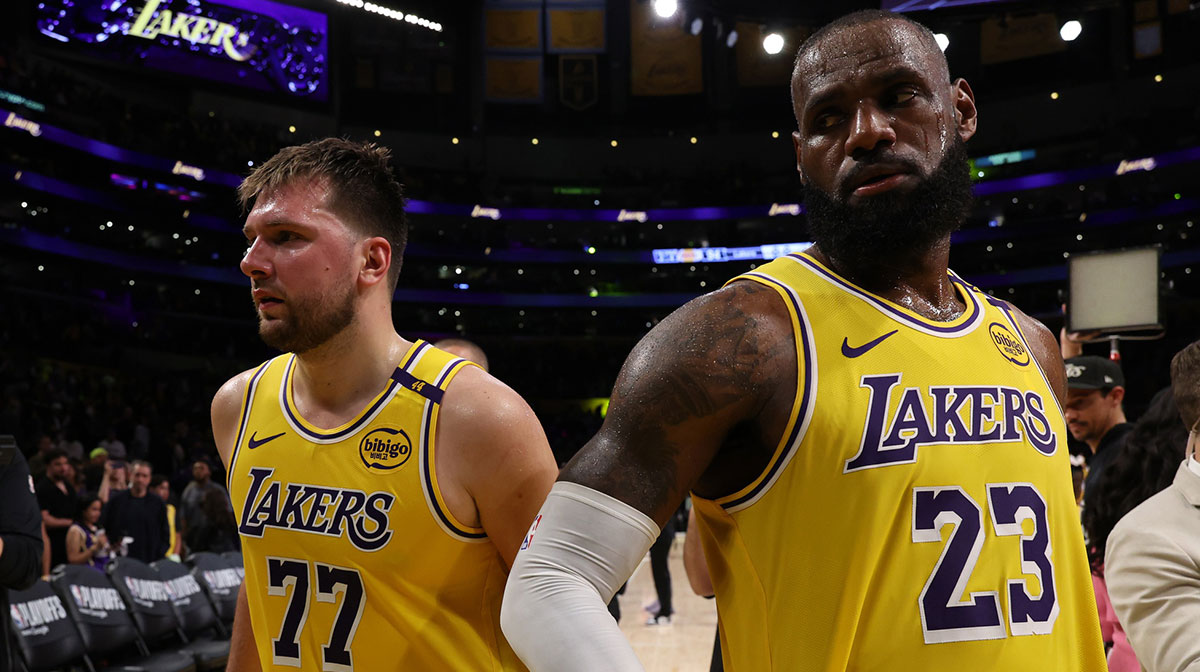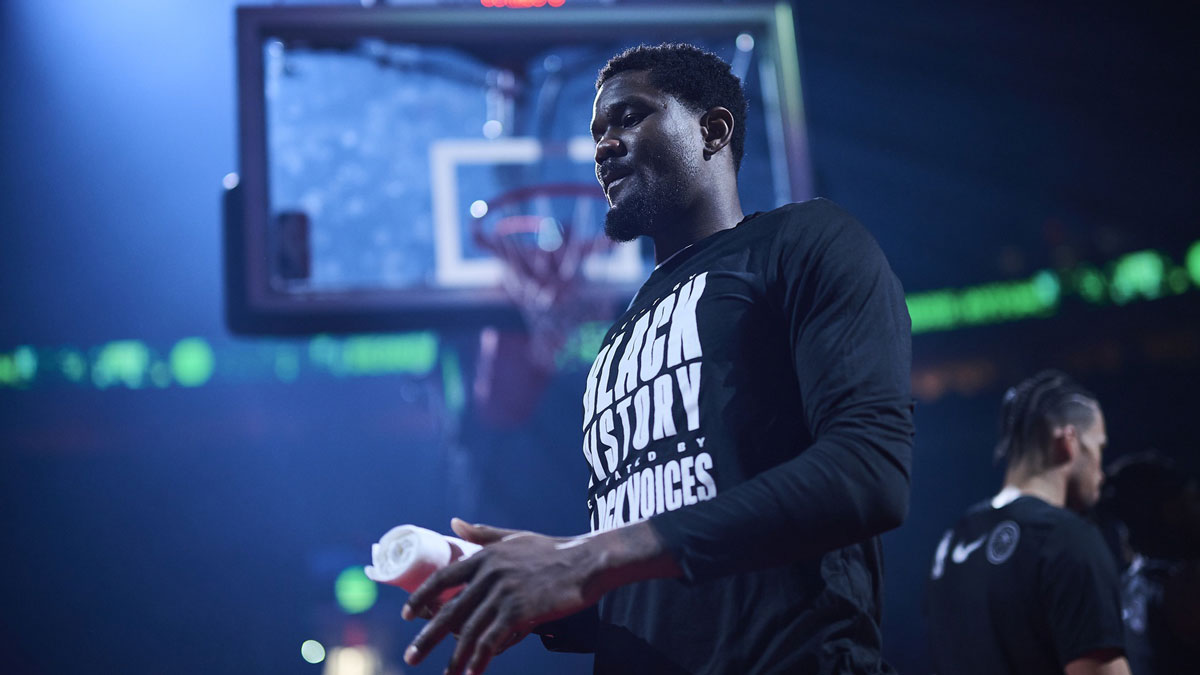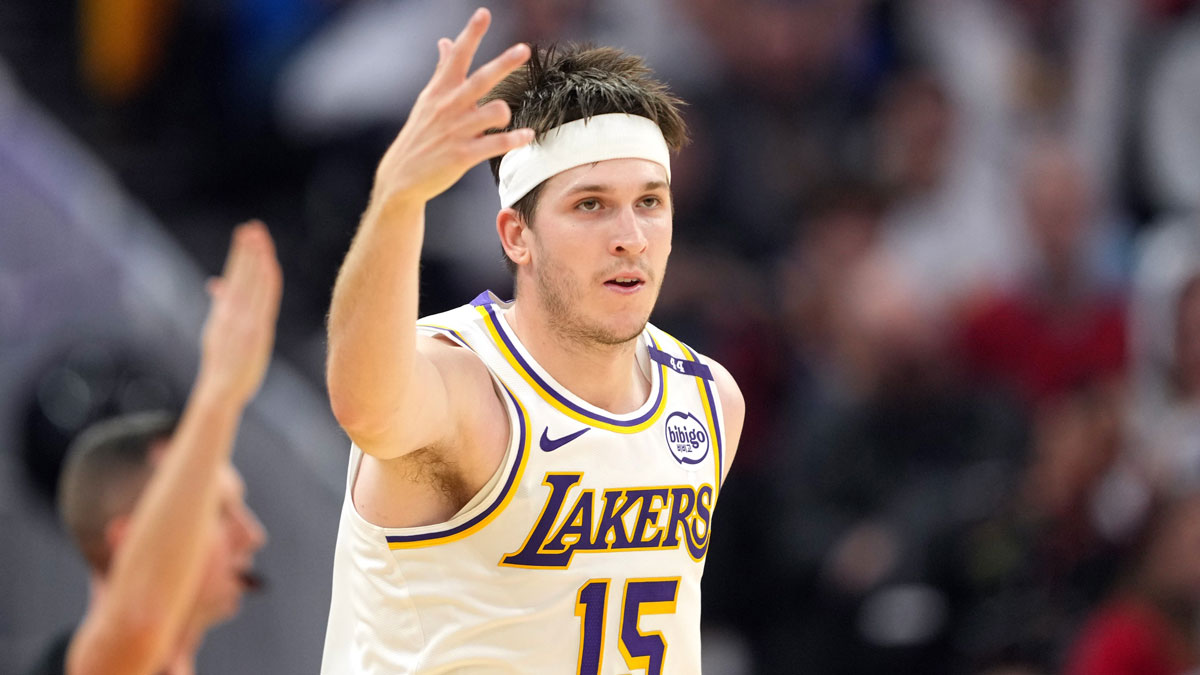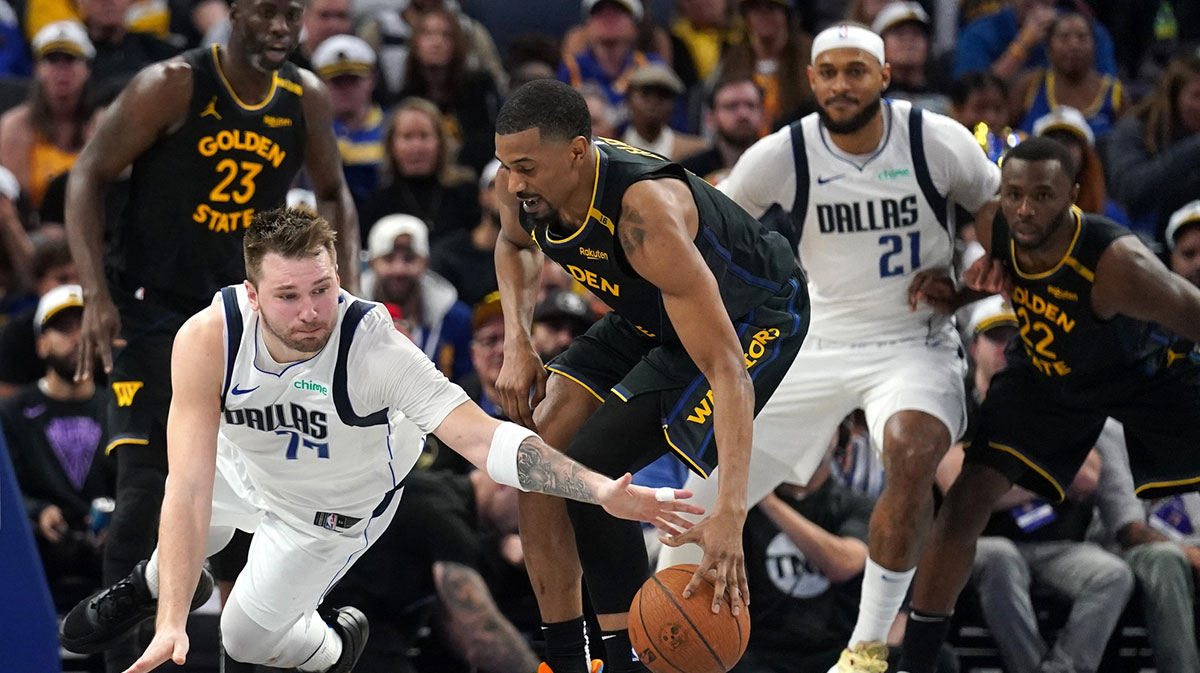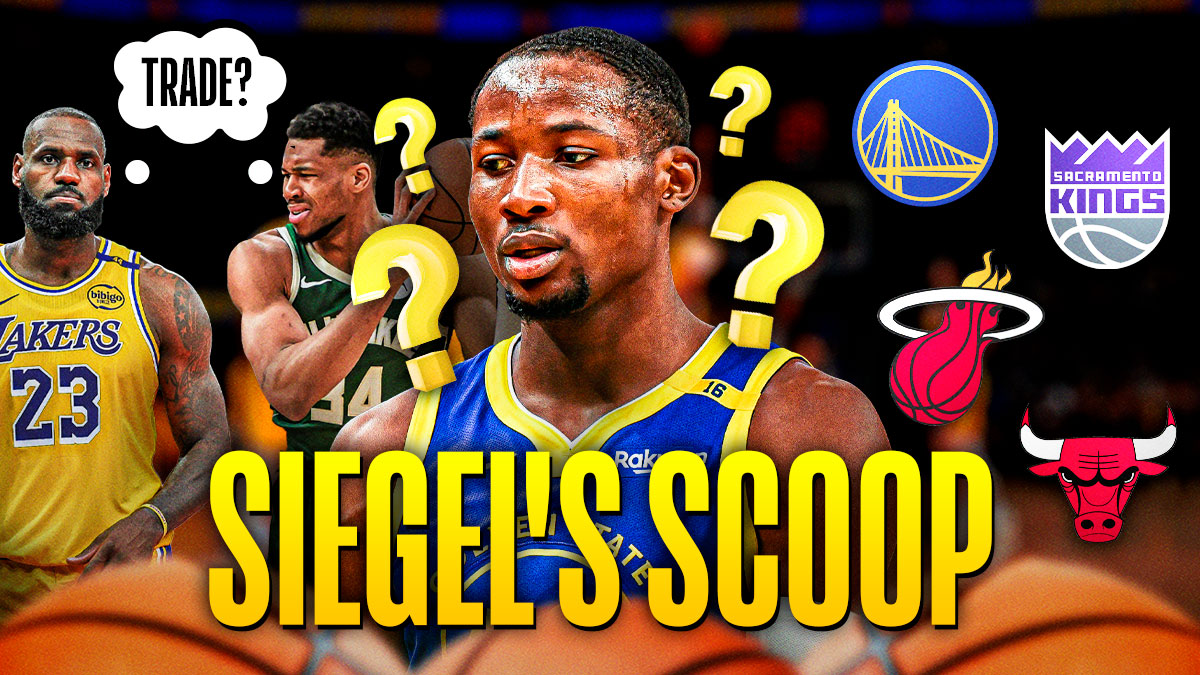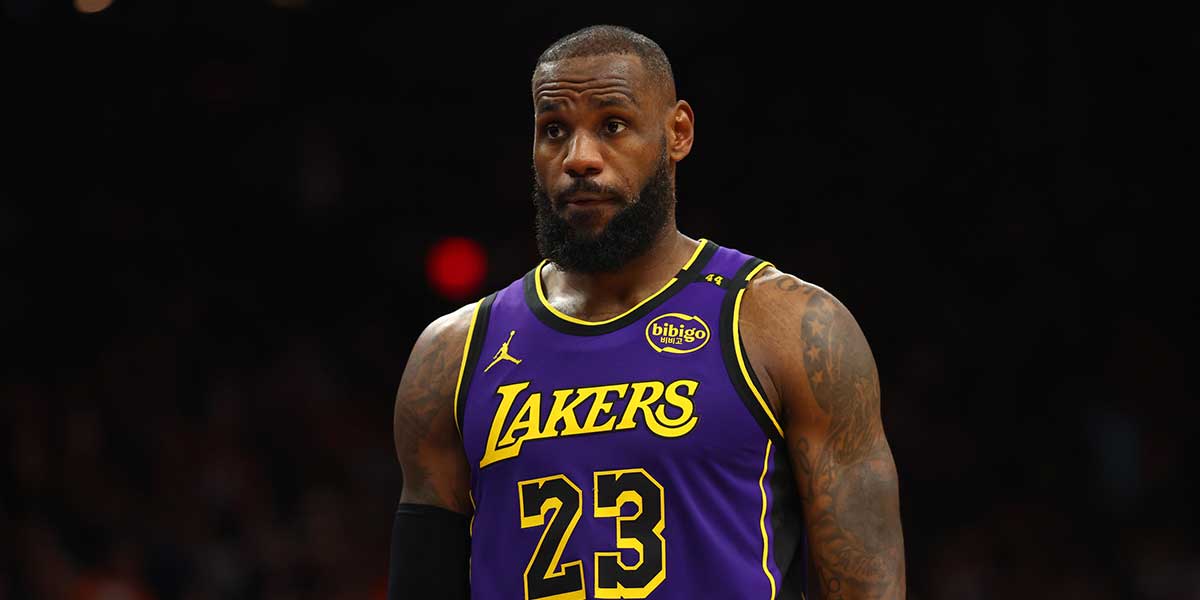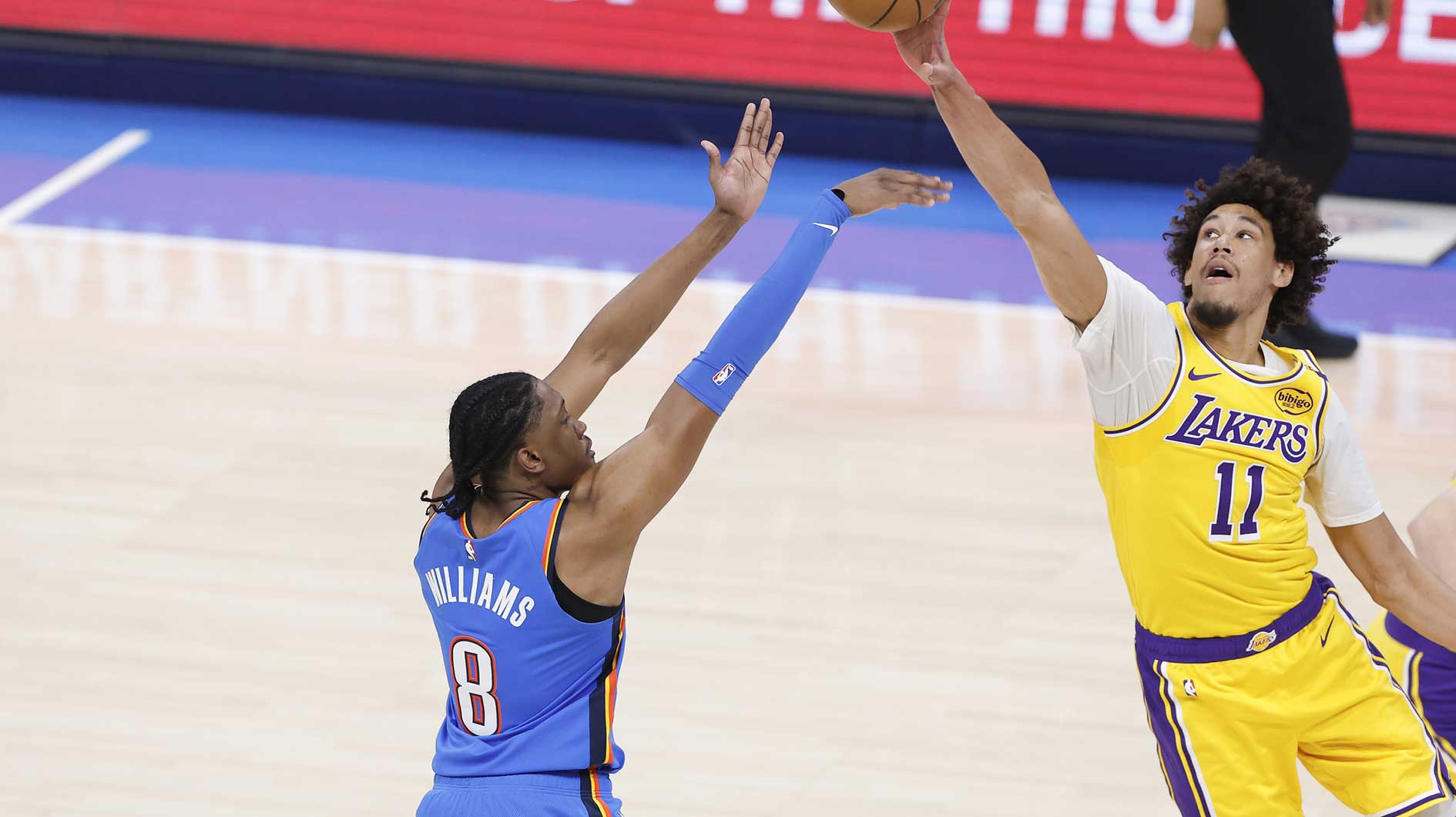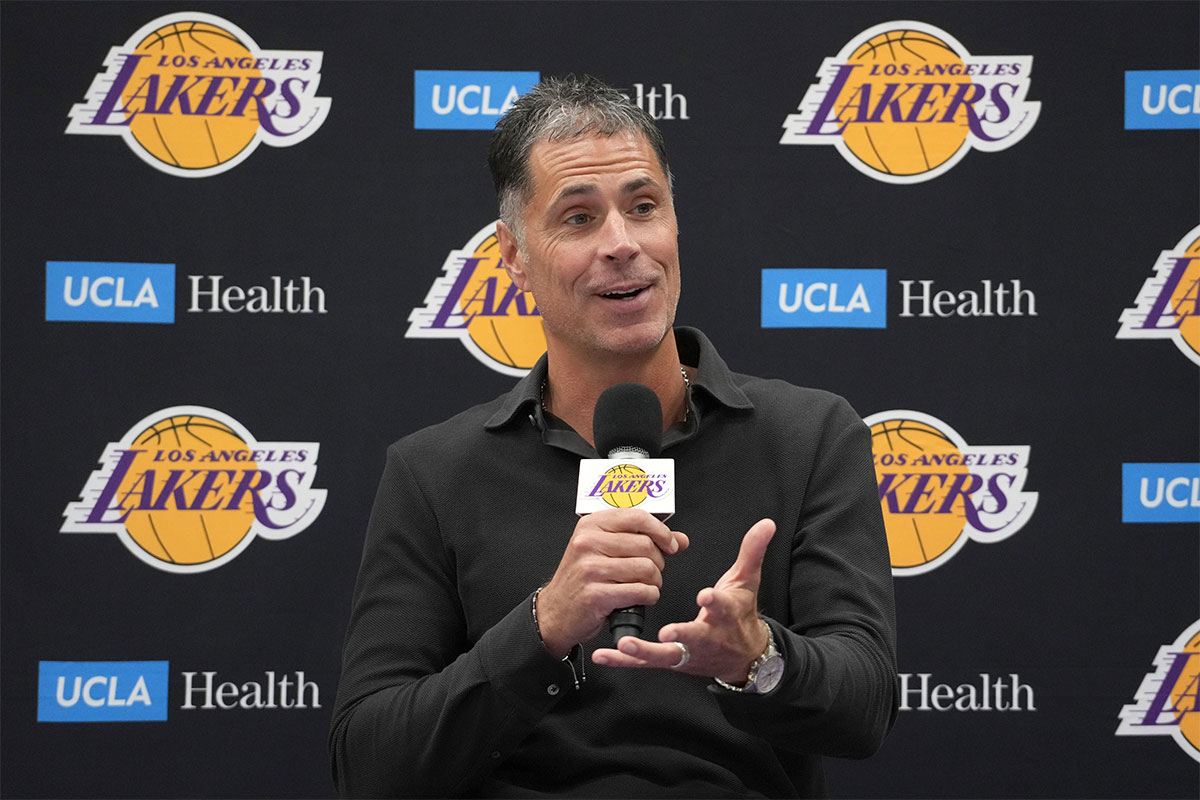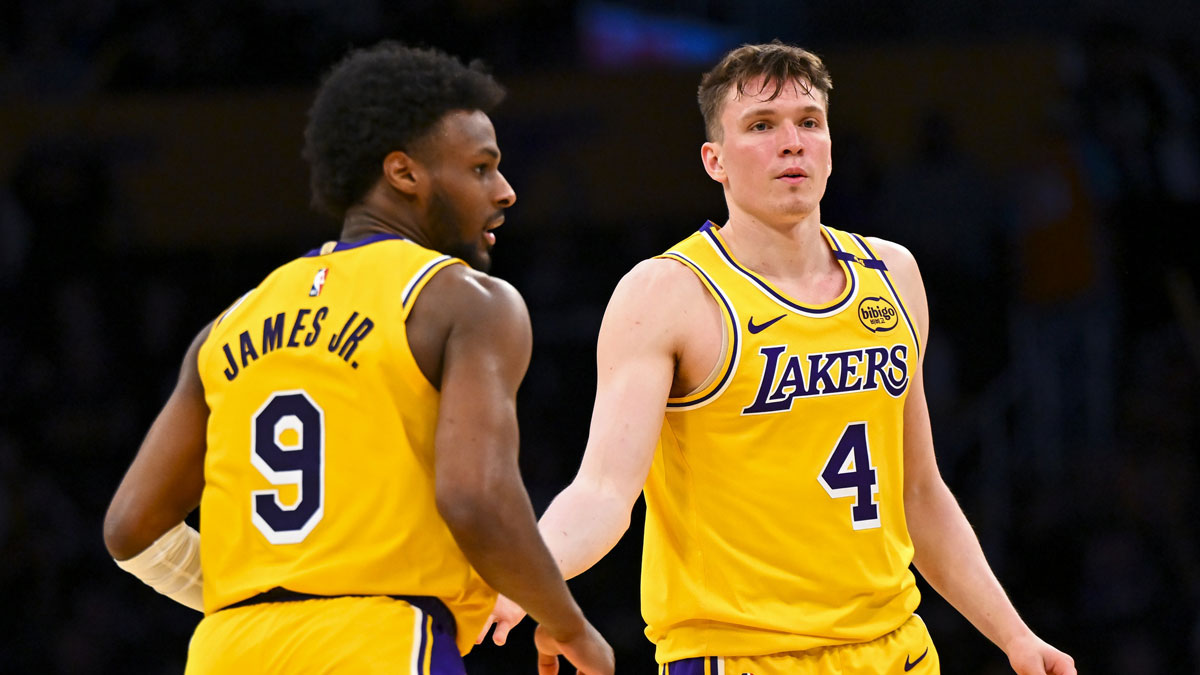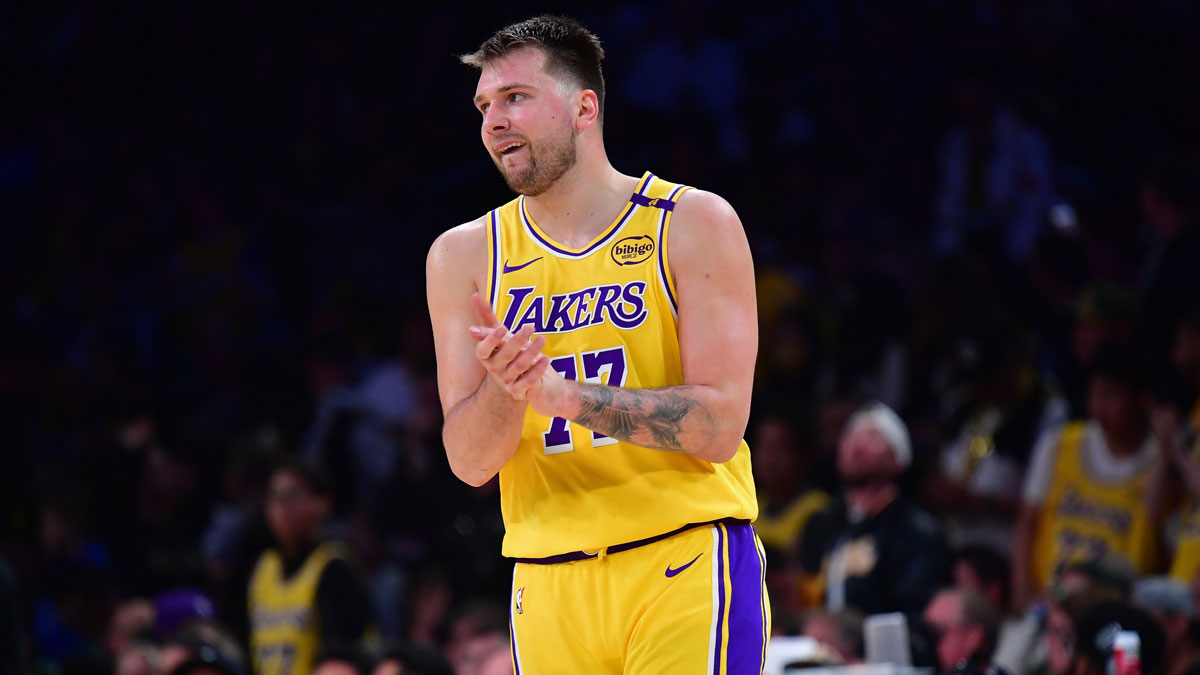If someone told you that LeBron James was centrally responsible for the Los Angeles Lakers failing to escape the first round of the NBA playoffs, you would probably view that person as crazy and unfair, a Skip Bayless wannabe with the dumbest and trashiest hot takes.
On the surface, it seems completely foolish and reckless to put the fall of the Lakers in 2021 on LeBron's shoulders. LeBron — when healthy this past season — was superb. The Lakers looked like the NBA's best team by a considerable margin when LeBron and Anthony Davis were reasonably healthy. Again, why blame LeBron for this?
It's not about the quality of LeBron's performance when healthy. It's not about the quality of his leadership (excellent) or the extent to which he was a good (great!) teammate for his fellow Lakers. Of course LeBron is a great teammate. He has spent a whole career making teammates better. This season was no exception.
Why, then, put this failure at LeBron's feet? The answer is not nearly as complicated as you might think.
Everyone can agree that the Lakers' season fell apart because their two best players were diminished by injuries. LeBron and AD were well below 100 percent for this series against the Phoenix Suns. If they were both healthy, few if any NBA observers would have predicted the Suns to prevail. This doesn't mean Phoenix is a mediocre or overrated team; the Suns did what they had to do and battled back bravely from a 2-1 series deficit. They earned this, and we don't have to dance around that fact.
Yet, injuries decided this series. The Lakers were the best team when healthy… but they weren't healthy. That is a relatively simple conclusion few would disagree with.
Why blame LeBron, though? Here's the answer: November 10.
What is the importance of that date? It was the day when the NBA announced that the new regular season would begin on December 22, 2020.
As soon as that Dec. 22 start date was announced, combined with a compressed schedule crammed in before the Summer Olympics in Tokyo, the Lakers weren't guaranteed to fall short of a championship… but their odds of repeating were dealt a significant blow. It doesn't take a rocket scientist to understand why, either.
A normal-length offseason for the two teams which compete in the NBA Finals is almost 3.5 months. The finals normally end in mid-to-late June. Training camp for the next season normally starts at the end of September, leading into the beginning of the regular season in mid-October. It is appropriate. Players on the two NBA Finals teams push themselves through 82 regular-season games and four best-of-seven playoff series — at least 16 postseason games, generally more than 20 — meaning that the finals teams play just over 100 meaningful basketball games in a season. Players need (and moreover, deserve) to decompress from all that work. They need a legitimate offseason to rest, relax, recuperate, and recharge for the next cycle of 8.5 months of professional basketball… and that includes a regular-season schedule with ample rest in between games, hardly any back-to-backs, and no sequences with four games in five nights.
The NBA has, to its credit, been very proactive the past several years about reducing back-to-backs, “4 in 5s,” and the other scheduling sequences which have ground players' bodies into sausage. The league has been a lot more attentive to giving players more rest and recovery time within the season. It's no small thing that LeBron James — with the Cleveland Cavaliers — and the Golden State Warriors kept meeting in the Finals, giving the NBA a showcase product each June. The superstars were in physical shape. The scheduling accommodated players and their physical and mental needs.
The Lakers and the Miami Heat didn't receive that accommodation with the Dec. 22 start date, which was accompanied by training camp starting in very early December of 2020.
The Lakers and Heat ended the 2020 finals on Oct. 11. The agreement to start the next season on Dec. 22 therefore came one month after the 2020 finals ended. Players had very little time to adjust to the fact that they would have to report to training camp — it was just three weeks away! Players learned on Nov. 10, 2020, that their regular season would start in six weeks.
For the teams which didn't advance past the second round of the playoffs, preparing for the coming season wasn't a hugely unreasonable request on the part of the NBA. Those teams' seasons ended in mid-September, giving them about 2.5 months to regroup… but for the four teams which made the conference finals and then the two teams which battled in the NBA Finals, this was a brutally short turnaround. The Lakers and Heat were legitimately compromised as soon as the Dec. 22 regular-season start date was announced.
Then came the compressed schedule.
As bad as the Dec. 22 start date was, the compressed schedule — packing in games and completely abandoning the positive, enlightened practice of spacing out the schedule in previous NBA seasons — had just as big an effect on subjecting players around the league to injuries. We saw far more high-profile injuries than in previous NBA seasons. The effect on the league's balance of power has been enormous, and it reaches beyond the Lakers themselves.
Jamal Murray being injured will probably cost the Nuggets a finals trip, though Denver won its first-round series against the Portland Trail Blazers. Stephen Curry missed enough games with the Golden State Warriors to force them into the play-in round, where they lost. Joel Embiid has a torn meniscus, leaving the Philadelphia 76ers vulnerable and in an undeniable underdog position if they manage to face the Milwaukee Bucks or Brooklyn Nets in the East finals.
Beyond the especially significant injuries in the league, the product of pro basketball also suffered this year. You saw the injury reports and the load management lists before games. Teams were playing without five, six, or seven players in a number of their games, all so that they could be somewhat fresh for the playoffs. Players were subjected to a significantly increased injury risk and noticeably worse working conditions. It wasn't just the Lakers who were ravaged by injuries in a season-altering fashion.
You might be thinking, “Okay, but what does this have to do with LeBron James?”
Very simply: If LeBron — who was in the middle of the Orlando bubble, contemplating whether to continue the NBA player strike in August (in response to the Jacob Blake shooting in Wisconsin and the Bucks' decision not to play a playoff game) — had said that a Dec. 22 start date was completely unacceptable, would the NBA have gone ahead with its plan? Would the NBA have fought tooth and nail in a pandemic against the best player on the Lakers, weeks after the Lake Show had won an emotional NBA title to honor the memory of Kobe Bryant?
Would the NBA — very intent on promoting its brand as being conscious of racial justice and wanting to do right by its predominantly Black player base — have picked a fight with LeBron in the midst of the Lakers' championship afterglow, and all the good publicity that brought the league?
If you think the NBA was still going to get its way with this Dec. 22 start — due to a desire by Adam Silver and the owners to collect Christmas Day TV money — fair enough. Yet, there is still a counterpoint to be made:
What if LeBron had said, “Well, you can start on Dec. 22 all you want, but I'm taking my 3.5-month offseason, just as I did after the NBA Finals when I was with the Cavs and the Miami Heat. I won't play a game until Feb. 1, even if it means the Lakers lose a bunch of games”?
What then?
LeBron James is a powerful figure in a league — the NBA — where players are much more empowered than they are in the other major pro sports leagues, the NFL, MLB, and NHL. Pandemic scheduling was a point of great uncertainty. It's not as though it was obvious, when the 2020 finals ended on Oct. 11, that training camp for the new season would start in just a month and a half. There was a real possibility that the season was going to start on Martin Luther King Day.
This was all up in the air. It was hardly set in stone. LeBron certainly could have leveraged his position in the NBA — and as a global icon — to ensure that either he or the Lakers, or both, received a full-length offseason.
He did not… and the Lakers subsequently got shredded by injuries which, though not guaranteed, were always going to be much more likely with a Dec. 22 start date and a compressed schedule.
LeBron James could have made a very public — and noble — stand against this completely irresponsible schedule laid out by the NBA. If you stop and think about it, he really is the man most centrally responsible for the premature end of the Lakers' 2021 season.


